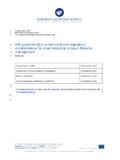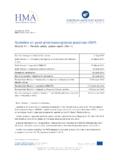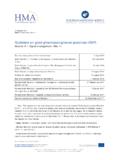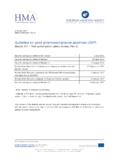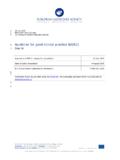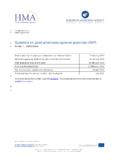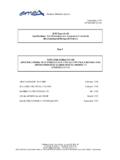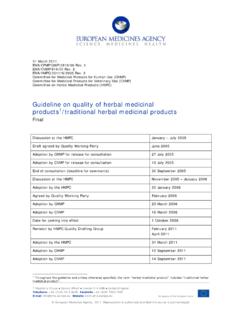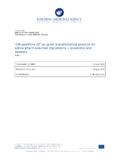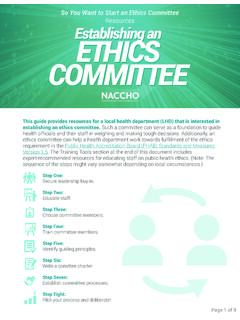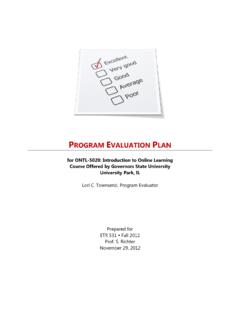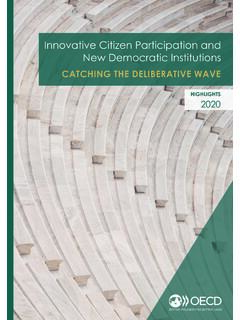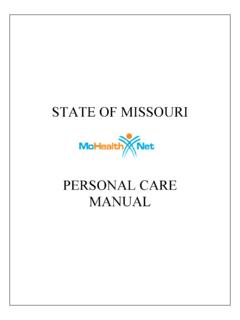Transcription of ICH guideline E6 on good clinical practice
1 24 June 2021 EMA/CHMP/ICH/337843/2021 Committee for Medicinal Products for Human Use ICH guideline E6 on good clinical practiceDraft ICH E6 principles Transmission to CHMP 24 June 2021 Release for information 24 June 2021 Official address Domenico Scarlattilaan 6 1083 HS Amsterdam The Netherlands Address for visits and deliveries Refer to Send us a question Go to Telephone +31 (0)88 781 6000 An agency of the European Union European Medicines Agency, 2021. Reproduction is authorised provided the source is acknowledged. 19 April 2021 ICH-E6 Good clinical practice (GCP) Explanatory Note The International Council for Harmonisation (ICH) is committed to developing timely technical requirements for pharmaceuticals for human use in a manner that is responsive to the needs of the global community.
2 ICH is committed to stakeholder engagement and transparency in the development of its guidelines. ICH E6 Good clinical practice (GCP) guideline is widely used by clinical trial researchers beyond the membership and regional representation of ICH itself and has a significant impact on trial participants and patients. Acknowledging the wide and substantial impact of ICH E6, the ICH Management Committee is making available a draft, work-in-progress version of the updated principles that are currently under development by the ICH E6(R3) Expert Working Group (EWG). The principles are interdependent and should be considered in their totality to assure ethical trial conduct, participant safety, and reliable results of clinical trials.
3 The renovation of ICH E6(R2) will set out principles which will be aligned with the principles in ICH E8(R1) Revision of General Considerations for clinical Studies. ICH E8(R1) includes a framework for designing quality into clinical trials, stakeholder engagement, trial design, proportionate trial management and focus on factors critical to the quality of trials. When complete, ICH E6(R3) will be composed of an overarching principles document (the document of which a draft is now made public), Annex 1 (addressing interventional clinical trials), and Annex 2 (providing any needed additional considerations for non-traditional interventional clinical trials).
4 The overarching principles document and Annex 1 will replace the current ICH E6(R2). Although the EWG s work is continuing and the group is still progressing towards Step 2 of the ICH guidance development process ( ), the ICH Management Committee decided that sharing the draft version of the principles would facilitate transparency and common understanding. Although public comments are not requested at this time, once the updated ICH E6 guideline achieves Step 2 of the ICH guidance development process, public input will be invited and considered. Step 2 will involve simultaneous publication of both the draft principles and Annex 1, along with an introduction and a glossary. Public comment will be invited at that point since the principles need to be seen and commented on alongside the details in Annex 1.
5 The ICH E6(R3) EWG is organizing a web conference to present the current draft of the GCP principles as a work in progress. Additionally, the general ICH process will be presented with a focus on the ICH E6(R3) development process. 1 19 April 2021 2 ICH E6 Principles (Draft Version: March 2021) clinical trials are a fundamental part of clinical research that support the development of new medicines or uses of existing medicines. Well designed and conducted clinical trials help answer key questions in health care and drug development. Their results are essential for evidence-based healthcare decisions. Trials with inadequate design and/or poorly conducted trials may place participant safety at risk and yield inadequate or unreliable evidence.
6 They waste resources and the efforts and time of investigators and participants. The principles of GCP are designed to be flexible and applicable to a broad range of clinical trials. This guideline , along with ICH E8, encourages thoughtful consideration and planning to address specific and potentially unique aspects of an individual clinical trial. This includes evaluation of trial characteristics, such as the design elements, the investigational product being evaluated, the medical condition being addressed, characteristics of the participants, the setting in which the clinical trial is being conducted, and the type of data being collected. Careful consideration of factors relevant to ensuring trial quality is needed for each clinical trial.
7 The principles are intended to support improved and more efficient approaches to trial design and conduct. For example, innovative digital health technologies may expand the possible approaches to trial conduct. Such technologies can be incorporated in existing healthcare infrastructures and enable the use of a variety of relevant data sources in clinical trials. This will aid in keeping clinical trial conduct in line with advancing science and technological developments. The use of technology in the conduct of clinical trials should be adapted to fit the participant characteristics and the particular trial design. The use of innovative technologies may help enable those designing and conducting a trial to include relevant patient populations.
8 This guideline is intended to be media neutral to enable the use of different technologies for the purposes of documentation. clinical trial designs that bring the trial to participants and their communities may improve the representativeness of the participant population and enable wider participation . The process of building quality into the design of the trial may be supported by participation of those directly involved. These may include a broad range of stakeholders, including patients and treating physicians. Their input can increase the likelihood of meaningful trial outcomes, which are relevant to both trial participants and future patients.
9 This input will also guide decisions on the feasibility of data collection and assure that participation in the trial does not become unduly burdensome for those involved. clinical trials should be designed to protect the rights, safety and well-being of participants and assure the reliability of results. clinical trial designs and processes should be proportionate to the risks inherent in the trial and the importance of the data being collected. Trial designs and processes should be evaluated to minimize unnecessary complexity and burden. The following overarching principles provide a flexible framework for clinical trial conduct. They are structured to provide guidance throughout the lifecycle of the clinical trial.
10 These principles are applicable to trials involving human participants, , healthy volunteers or patients. The principles are interdependent and should be considered in their totality to assure ethical trial conduct and reliable results. 19 April 2021 3 1- clinical trials should be conducted in accordance with the ethical principles that have their origin in the Declaration of Helsinki and that are consistent with good clinical practice (GCP) and applicable regulatory requirement(s). 2- clinical trials should be designed and conducted in ways that ensure the rights, safety, and well-being of participants. The rights, safety, and well-being of the participants are the most important considerations, and should prevail over interests of science and society.
